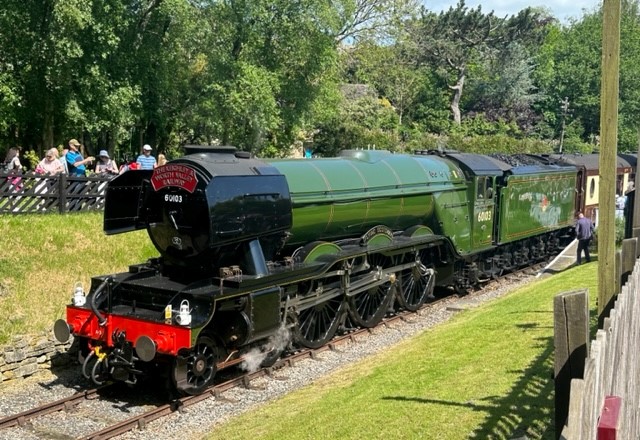
When steam locomotives are mentioned, there is always a sense of excitement surrounding the iconic Flying Scotsman. So what makes this locomotive so special that over 4 million pounds have been invested in its restoration?
Originally built in 1923 for the London and North Eastern railways in Doncaster, this train was aptly named after the prestigious service it provided, connecting London and Edinburgh. In its time, this service was a source of great excitement for people, as it significantly reduced travel time. Throughout its lifespan, the Flying Scotsman achieved two world records, becoming the first locomotive to reach speeds of 100 miles per hour and completing a non-stop 422-mile journey during its visit to Australia. These accomplishments solidified its place in locomotive history.
Interestingly, the Flying Scotsman may also have played a role in funerals. In the past, coffins were transported on trains and it could just well be that it was responsible for transporting the deceased from London to Edinburgh. Railways were the primary mode of transportation across the country, and some cemeteries even had their own railway systems to transport both the deceased and mourners. Our business in the past would order funeral supplies where they would be placed on a train and promptly collected the same day from Marsden train station.
However, times change, and with the advent of modern transportation, it is now uncommon to send a coffin by train unless specifically requested by the family as a last wish of the deceased. The last funeral train was used for Sir Winston Churchill on January 30th, 1965. In honour of the 50th anniversary of his passing, his funeral carriage underwent refurbishment and is now kept in a museum.
So, how does the Flying Scotsman fit into funerals today? Its significance is primarily limited to railway enthusiasts who may choose to have a picture coffin or ashes casket adorned with an image of the Flying Scotsman. In this way, the legacy of this remarkable locomotive lives on in the realm of modern funerals.
